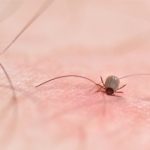For people in whom symptoms of Lyme disease persist beyond the standard course of two to four weeks of antibiotic therapy, longer term antibiotic treatment provides no additional benefits beyond the shorter term course. This is the conclusion of a recent study published in the New England Journal of Medicine that builds on a number…








